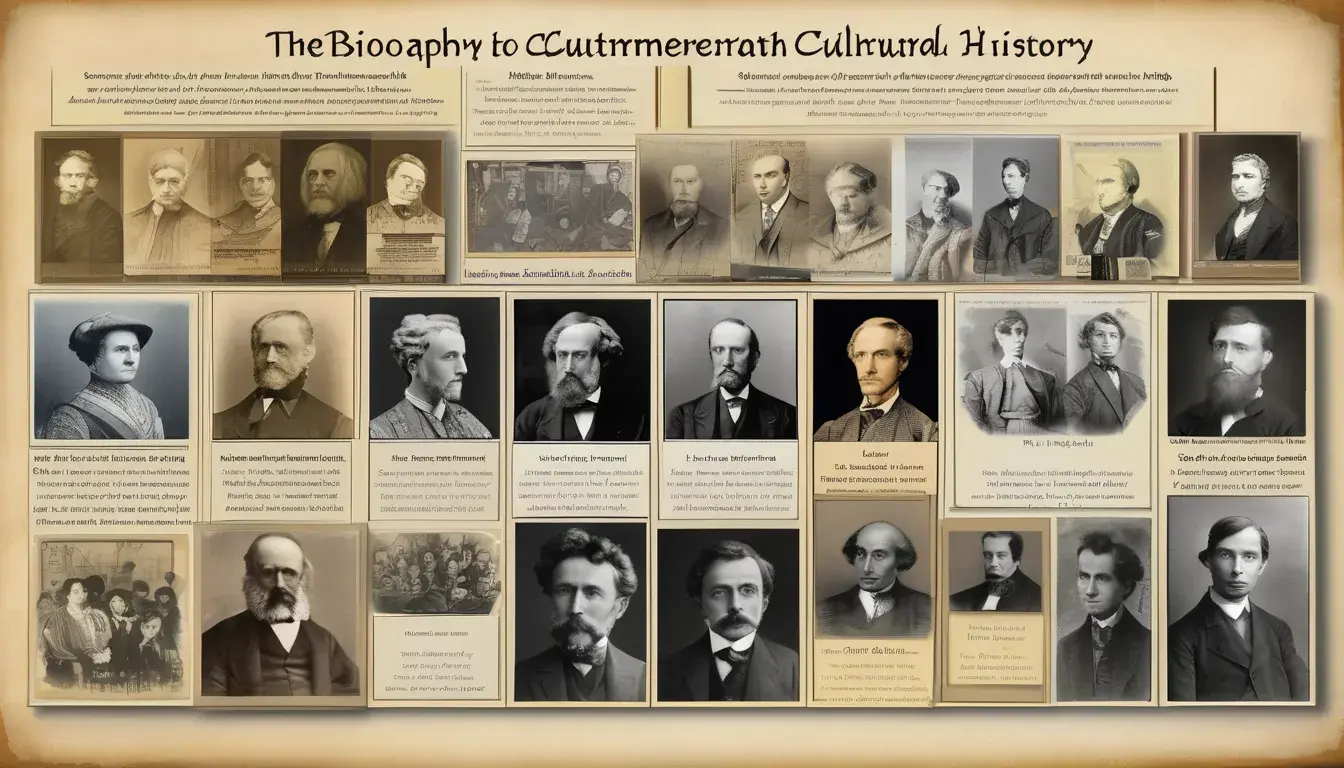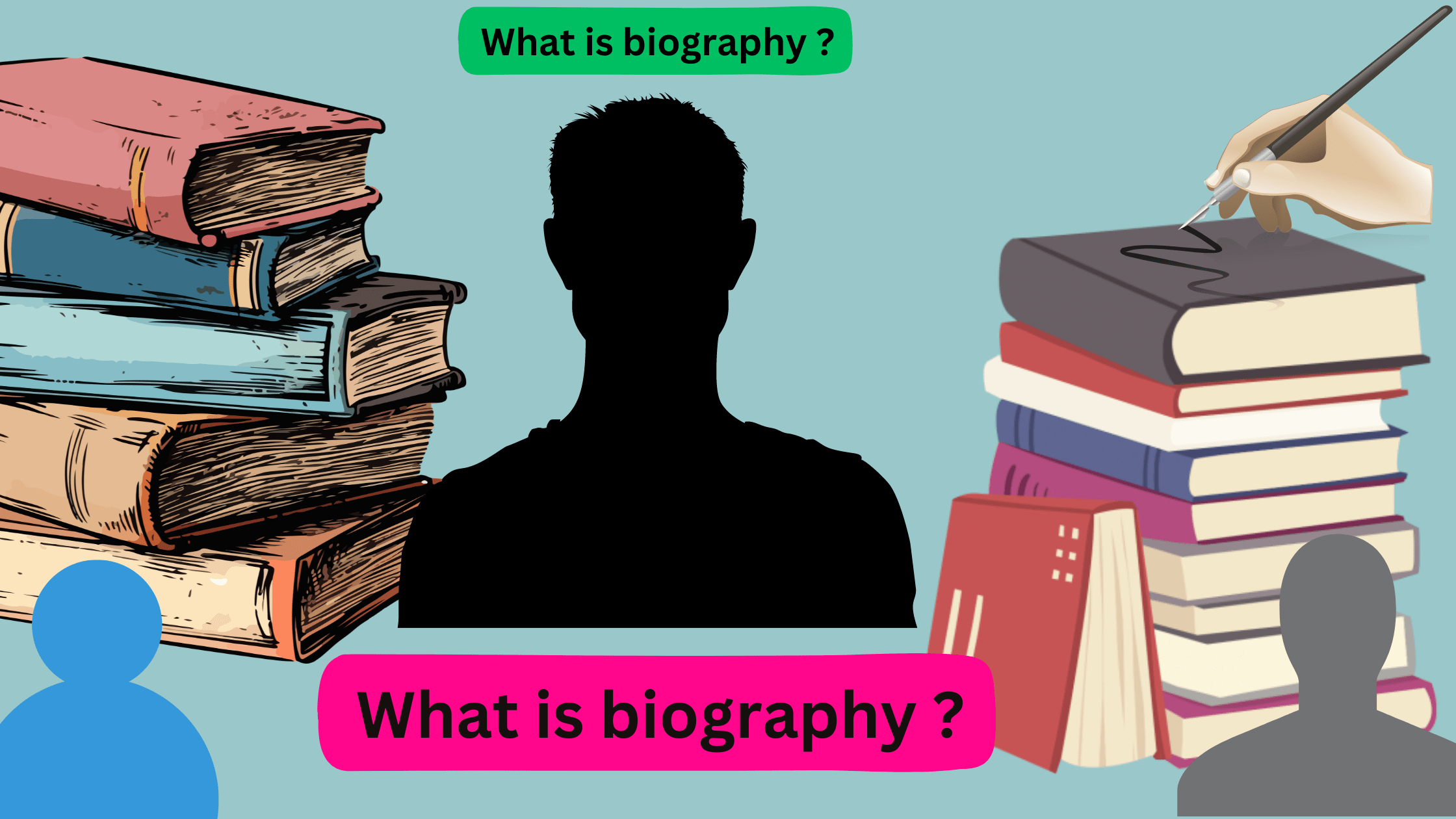Using Biographies to Understand Cultural History
Throughout history, individuals have played a pivotal role in shaping culture and society. Their actions, beliefs, and experiences have shaped the way we live and understand the world. In order to gain insight into cultural history, biographies provide a unique and captivating avenue of exploration. By delving into the lives of influential figures, we are able to understand the historical context in which they lived and the impact they had on their respective cultures.
Biographies offer a personal perspective that textbooks and historical accounts often overlook. They allow us to connect with the emotions, struggles, and triumphs of individuals who have left a lasting mark on society. Through the lens of biography, we can explore the experiences and motivations that influenced the development of art, literature, politics, and other cultural aspects.
By studying biographies, we gain a deeper understanding of the complexities and nuances of different cultural eras. They provide us with a glimpse into the lives of those who shaped and defined their respective times, helping us to paint a more vivid and accurate picture of cultural history. So, whether it’s the life of a famous artist, a political leader, or a pioneering scientist, biographies offer a captivating and invaluable resource for understanding the cultural tapestry of human history.
Importance of biographies in studying cultural history
Biographies are a powerful tool for understanding cultural history because they provide a unique and personal perspective on the individuals who have shaped their respective societies. Unlike textbooks or historical accounts that often focus on broad societal trends and events, biographies delve into the lives of influential figures, offering a more intimate and nuanced understanding of the cultural landscape.
By exploring the personal experiences, motivations, and decision-making processes of these individuals, biographies allow us to gain insights into the cultural values, norms, and customs that prevailed during their lifetimes. Through the lens of biography, we can better comprehend the complex interplay between individual agency and the larger societal forces that have molded the course of history.
Moreover, biographies often shed light on the diverse and multifaceted nature of cultural identity. They reveal the ways in which individuals navigate and negotiate the cultural landscapes they inhabit, shedding light on the complex and dynamic nature of cultural expression and identity formation. By studying the lives of influential figures, we can better understand the cultural dynamics that have shaped the human experience throughout history.
Types of biographies available for cultural history research
When it comes to exploring cultural history through biographies, there is a rich and diverse array of sources available to researchers. From traditional, chronological accounts of an individual’s life to more thematic or analytical approaches, the field of biographical literature offers a wealth of opportunities for cultural historians to engage with.
One of the most common and well-known forms of biographies are the traditional, cradle-to-grave narratives that trace the life and achievements of a particular individual. These comprehensive biographies often delve deep into the personal, social, and political contexts that shaped the subject’s life, providing a comprehensive understanding of their cultural and historical significance.
In addition to these traditional biographies, researchers may also encounter more specialized or niche forms of biographical literature, such as memoirs, autobiographies, and collective biographies that focus on particular cultural or social groups. These types of biographies can offer unique insights into the lived experiences and cultural perspectives of individuals or communities that may have been marginalized or overlooked in mainstream historical accounts.
Furthermore, the rise of interdisciplinary approaches to biography has led to the emergence of subgenres that blend biographical narratives with other fields of study, such as cultural studies, gender studies, or postcolonial theory. These innovative forms of biographical literature can provide valuable insights into the intersections between individual lives and broader cultural phenomena, enriching our understanding of the past and its legacies.
How biographies provide insights into individual experiences and societal norms
Biographies offer a unique window into the lived experiences of individuals, allowing us to explore the complex interplay between personal agency and the societal norms and expectations that shape cultural identity and expression. By delving into the intimate details of an individual’s life, biographies provide a nuanced understanding of how people navigate and negotiate the cultural landscapes they inhabit.
Through the lens of biography, we can gain insight into the ways in which individuals respond to and challenge the prevailing social and cultural structures of their time. Biographies often reveal the personal struggles, triumphs, and transformations that occur as people strive to reconcile their own values, beliefs, and aspirations with the dominant cultural narratives and expectations of their societies.
Moreover, biographies can shed light on the subtle and complex ways in which individuals both shape and are shaped by the cultural norms and practices of their time. By exploring the personal experiences, decision-making processes, and social interactions of influential figures, biographies can help us understand how cultural values, beliefs, and practices are transmitted, contested, and transformed over time.
In this way, biographies serve as a powerful tool for cultural historians, offering a rich and multifaceted perspective on the lived experiences of individuals and the ways in which they both reflect and challenge the broader cultural currents of their era. Through the study of biographies, we can gain a deeper and more nuanced understanding of the complex and dynamic nature of cultural identity and expression throughout history.
Biographies as a tool for understanding cultural change over time
Biographies are not merely static accounts of individual lives; they can also serve as powerful tools for understanding the dynamic and evolving nature of cultural history. By tracing the lives of influential figures across different eras, biographies can shed light on the ways in which cultural norms, values, and practices have shifted and transformed over time.
Through the comparative analysis of biographies spanning different historical periods, researchers can gain insights into the broader social, political, and economic forces that have shaped the cultural landscape. For example, by examining the lives of artists, writers, or intellectuals across multiple generations, biographers can illuminate the ways in which cultural production and expression have been influenced by changing societal attitudes, technological advancements, or political upheavals.
Moreover, biographies can also reveal the crucial role that individual agency and innovation have played in driving cultural change. By highlighting the ways in which influential figures have challenged, subverted, or transformed the prevailing cultural norms of their time, biographies can shed light on the dynamic and often contested nature of cultural evolution.
Through the study of biographies, cultural historians can gain a deeper understanding of the complex interplay between individual lives and broader societal trends, tracing the ways in which cultural identities, values, and practices have been shaped, negotiated, and reimagined over time. This rich and nuanced perspective can provide invaluable insights into the ongoing process of cultural change and the myriad factors that have contributed to the shaping of human civilization.
Notable biographies that have contributed to our understanding of cultural history
Throughout the annals of history, biographies have played a crucial role in shaping our understanding of cultural history, offering intimate and insightful perspectives on the lives of influential figures and the broader societal forces that have shaped their respective eras.
One notable example is “The Life of Samuel Johnson” by James Boswell, a seminal work that has provided scholars and readers alike with a vivid and multifaceted portrait of 18th-century English literary and intellectual culture. Boswell’s meticulous attention to detail and his ability to capture the nuances of Johnson’s personality and interactions have helped to illuminate the cultural milieu in which the renowned writer and critic lived and worked.
Another influential biography is “The Autobiography of Malcolm X,” co-written by Malcolm X and Alex Haley. This powerful work not only chronicles the life of the iconic civil rights leader but also offers a deeply personal and compelling exploration of the African American experience in the 20th century, shedding light on the complex interplay between individual identity, cultural heritage, and the broader struggle for racial justice and equality.
In the realm of art and culture, biographies such as “Michelangelo: A Life in Six Masterpieces” by Miles J. Unger and “Frida: A Biography of Frida Kahlo” by Hayden Herrera have provided invaluable insights into the lives and creative processes of these seminal figures, helping to contextualize their artistic contributions within the broader cultural and historical landscapes of their respective eras.
These are just a few examples of the many biographies that have enriched our understanding of cultural history, demonstrating the power of the biographical form to illuminate the complex and multifaceted nature of human experience and its impact on the cultural fabric of society.
Challenges and limitations of using biographies in cultural history research
While biographies offer a wealth of insights and perspectives for cultural historians, they also come with their own set of challenges and limitations that researchers must navigate with care and nuance.
One of the primary challenges in using biographies for cultural history research is the inherent subjectivity and potential bias of the biographical narrative. Biographers, like any other writers, bring their own perspectives, assumptions, and interpretive frameworks to their work, which can shape the way in which the subject’s life and cultural significance are presented. This can lead to the selective emphasis or omission of certain aspects of the individual’s life, potentially skewing our understanding of their broader cultural impact.
Furthermore, the availability and accessibility of biographical sources can also pose a significant challenge for cultural historians. Many influential figures may not have had their lives extensively documented, or the existing biographical materials may be limited in scope or accessibility. This can result in gaps or imbalances in the historical record, making it difficult to construct a comprehensive understanding of cultural dynamics and trends.
Additionally, the reliance on individual perspectives and experiences in biographies can sometimes obscure or overlook the broader societal and structural factors that have shaped cultural history. While biographies offer valuable insights into the personal and experiential dimensions of cultural change, they may not always provide a comprehensive or systemic analysis of the underlying social, economic, or political forces at play.
To overcome these limitations, cultural historians must approach biographical sources with a critical and nuanced lens, carefully cross-referencing multiple perspectives and sources to gain a more holistic understanding of the cultural context. They must also be mindful of the inherent biases and limitations of the biographical form, and seek to contextualize individual lives within the larger tapestry of cultural history.
Strategies for analyzing and interpreting biographical sources
Engaging with biographical sources for the purpose of cultural history research requires a multifaceted and rigorous approach, drawing upon a range of analytical strategies and interpretive frameworks.
One key strategy is to situate the biographical subject within their broader cultural, social, and historical context. By examining the individual’s life in relation to the prevailing norms, values, and power structures of their era, researchers can gain a deeper understanding of the ways in which the subject both shaped and was shaped by the cultural landscape. This contextual analysis can shed light on the complex interplay between individual agency and the larger societal forces that have molded the course of history.
Additionally, comparative analysis of multiple biographical sources can be a powerful tool for cultural historians. By examining the lives of influential figures across different time periods, regions, or social strata, researchers can identify patterns, trends, and points of divergence that illuminate the dynamic and evolving nature of cultural identity and expression. This comparative approach can help to challenge or corroborate existing historical narratives, leading to a more nuanced and comprehensive understanding of cultural history.
Furthermore, cultural historians can also draw upon interdisciplinary frameworks and methodologies to enrich their analysis of biographical sources. Incorporating insights from fields such as gender studies, postcolonial theory, or cultural studies can enable researchers to uncover the intersections between individual lives and broader cultural phenomena, shedding light on the complex and multifaceted nature of human experience.
By employing a range of analytical strategies and interpretive frameworks, cultural historians can leverage the rich and multifaceted perspectives offered by biographical sources to gain a deeper and more nuanced understanding of the past, and to illuminate the ongoing processes of cultural change and transformation.
Case studies: Examples of how biographies have shaped our understanding of cultural history
The power of biographies to shape our understanding of cultural history is perhaps best exemplified through a closer examination of specific case studies. Two notable examples that have significantly influenced our perspectives on the past are the biographies of Mohandas Gandhi and Frida Kahlo.
The biography of Mohandas Gandhi, written by renowned historian and Gandhi scholar Ramachandra Guha, has been instrumental in shaping our understanding of the Indian independence movement and the cultural and political landscape of 20th-century India. Guha’s meticulous attention to detail and his ability to capture the nuances of Gandhi’s personality and philosophical beliefs have provided scholars and readers alike with a rich and multifaceted portrait of the iconic leader and his pivotal role in the struggle for Indian self-rule.
By delving into the personal experiences, motivations, and decision-making processes that guided Gandhi’s actions, Guha’s biography has shed light on the complex interplay between individual agency and the broader cultural and political forces that shaped the Indian independence movement. This intimate and insightful perspective has not only enhanced our understanding of Gandhi’s legacy but has also illuminated the ways in which cultural identity, nationalism, and the pursuit of social justice intersected in the context of colonial India.
Similarly, the biography of Mexican artist Frida Kahlo, written by Hayden Herrera, has played a significant role in shaping our understanding of 20th-century Mexican cultural and artistic history. Herrera’s vivid and empathetic portrayal of Kahlo’s life has not only brought the artist’s remarkable achievements to the forefront but has also shed light on the complex social, political, and cultural currents that shaped her artistic expression and personal identity.
By exploring Kahlo’s experiences as a woman, a Mexican, and a political activist, Herrera’s biography has illuminated the ways in which the artist’s art and life were inextricably linked to the broader cultural and social dynamics of her time. This nuanced understanding of Kahlo’s life and work has been instrumental in challenging and expanding traditional narratives of art history, highlighting the vital role that individual artists can play in shaping the cultural fabric of a society.
These case studies demonstrate the powerful ways in which biographies can contribute to our understanding of cultural history, providing a rich and multifaceted perspective on the lives and legacies of influential figures and the broader societal forces that have shaped their respective eras.
Conclusion: The value of using biographies for cultural history research
In conclusion, the study of biographies offers a compelling and invaluable avenue for cultural historians seeking to gain a deeper and more nuanced understanding of the past. By delving into the lives of influential figures, biographies provide a unique and personal perspective on the cultural, social, and political dynamics that have shaped the human experience throughout history.
Through the lens of biography, researchers can explore the complex interplay between individual agency and the broader societal forces that have molded the course of cultural development. Biographies shed light on the ways in which influential figures have both shaped and been shaped by the prevailing norms, values, and practices of their respective eras, offering a rich and multifaceted understanding of the cultural tapestry of human civilization.
Moreover, the comparative analysis of biographies spanning different historical periods and cultural contexts can reveal the dynamic and evolving nature of cultural identity and expression, highlighting the ways in which individuals and societies have navigated the challenges and transformations of the past. By engaging with this diverse array of biographical sources, cultural historians can challenge and expand existing historical narratives, leading to a more comprehensive and nuanced understanding of the human experience.
Ultimately, the study of biographies represents a powerful and indispensable tool for cultural historians, providing a unique and captivating avenue for exploring the complexities and intricacies of the past. Through the intimate and personal perspectives offered by biographical sources, researchers can gain invaluable insights into the cultural, social, and political forces that have shaped the human story, enriching our understanding of the world we inhabit and the legacies we have inherited.


